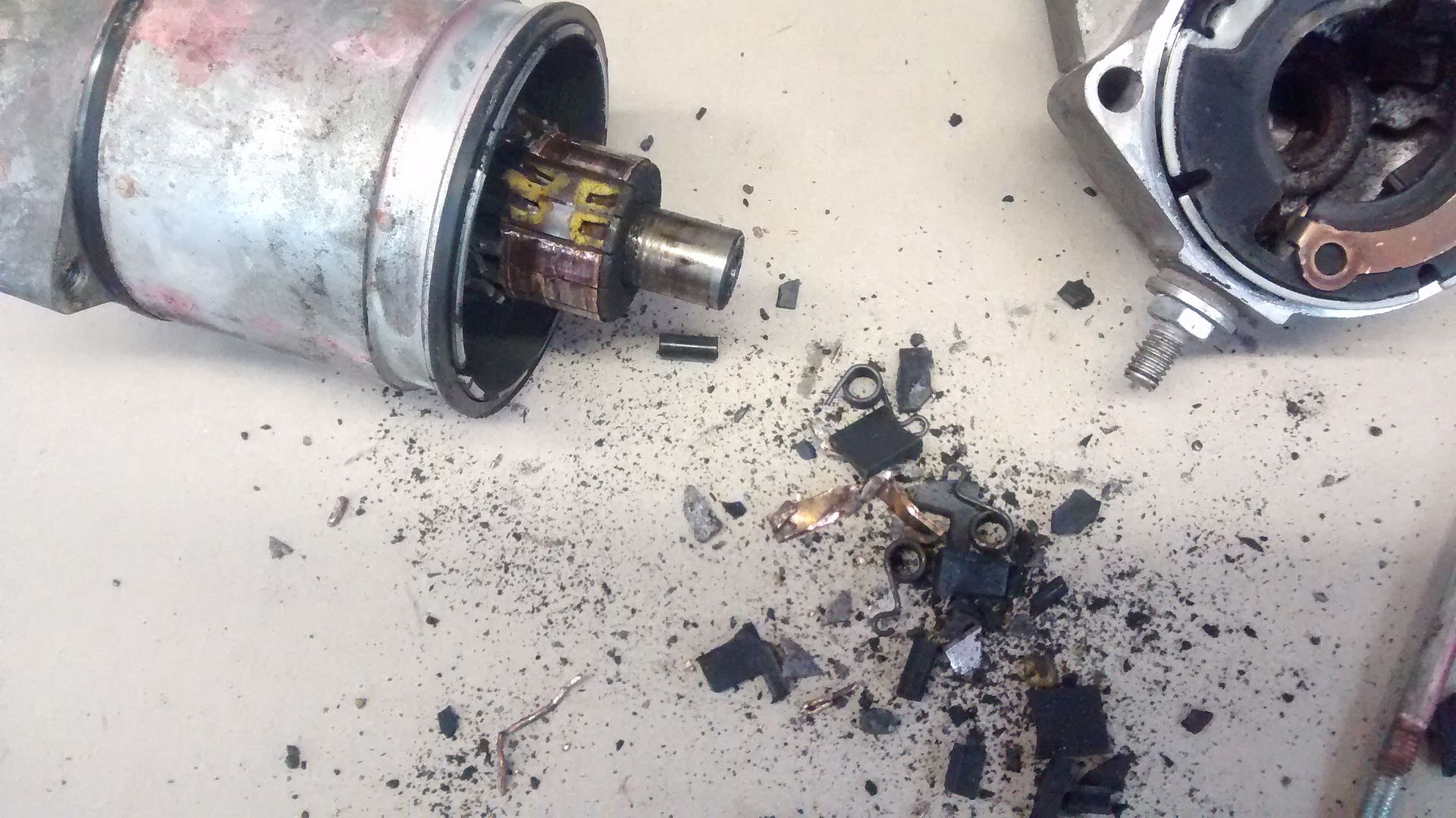Think I've (just possibly) found the problem now...


I did a track day come sprint event at Blyton today. In the afternoon I spun on the last corner, didn't get the clutch in quick enough and
stalled. Car won't restart now with just a click from the starter. I know the BUSA has problems if it's turned backwards but not heard of it
being an R1 issue (and I've spun it a few times).
Anyone any experience? Is it just a starter issue or will I have done something more? It did restart with a bump and sounded OK but I just ran it back
to the paddock.
I thought it was common with all bike starters. I'm always very quick on the clutch if I'm gonna spin!
[Edited on 19/9/15 by daniel mason]
I've not seen people say they've had issues with the R1,but the starter gear doesn't move backwards as the starter is constantly
engaged,so something must have to give.
Presuming your mounting points etc are intact?
On the early R1 the gear the starter meshes with is removable,but it's a clutch basket out job to get to it.
quote:
Originally posted by daniel mason
I thought it was common with all bike starters. I'm always very quick on the clutch if I'm gonna spin!
[Edited on 19/9/15 by daniel mason]
I spun there too and just booted the throttle to get the back end round mid corner as I was scared of damaging the timing gear. It all happens so quickly though
Anybody have experience of damaging a starter this way? Thinking that if the starter clutch was damaged the starter would spin but not drive the engine where mine doesn't spin. Could it just be the motor and not its drive gear/clutch?
A few minutes testing with a digital multi-meter should pin down any electrical issue it could be a simple as an engine earth connection fault.
Start by checking the voltage directly across the battery terminals when you operate the starter -- when the starter is operated the voltage should
should drop from normal battery 12.5v but remain at least 10.5 volts. A lower voltage indicates a dead cell in the battery or a dead short in the
starter or main cables.
The next tests are voltage drop tests.
Then check the voltage drop when the starter is operated between the cylinder block and the battery negative terminal in normal operation this should
be 0.001 to 0.003 volts (ie 1 to 3 mVolt)
Then check the voltage drop between the battery positive and the main connection on the starter motor (nb not the solenoid) again again in normal
operation this should be in the range 0.001 tom 0.003 volts. Follow this by check the voltage between the same main terminal on the starter and
the battery positive when the starter is operated again it should remain above 10.5 volts.
If you see a big voltage in the voltage drop tests then it points to a problem with the power or earth leads or a short circuit inside the starter.
If you see no voltage drop at all then it means there is no current flowing through the starter check the starter solenoid/relay and if nothing
found disconnect the starter and check it on the bench
BT, thanks but I'm after info/experience about knackering a bike engine starter by turning the motor backwards in a spin.
They have sprag clutches, like a push bike so try stopping the pedals when going backwards and it's the same on your R1
I have seen a fireblade starter snapped into 2 after a short spin, you need to be pulling the starter and if lucky this is damaged otherwise it's
looking behind the clutch basket at the bits that drive the flywheel.
quote:
Originally posted by mark chandler
They have sprag clutches, like a push bike so try stopping the pedals when going backwards and it's the same on your R1
I have seen a fireblade starter snapped into 2 after a short spin, you need to be pulling the starter and if lucky this is damaged otherwise it's looking behind the clutch basket at the bits that drive the flywheel.
If the worst comes to the worst you've def had yourmonies worth out of that unit!
The last time I spun an R1 engined car, I managed to get the clutch in quite quickly, but, by that point, I'd snapped off the clutch master
cylinder (against a tree!) so the pedal did nothing. The starter was FUBAH (along with 3 master cylinders, two wishbones, a nose cone and my elbow!).
Wyn
Fortunately there's not a lot to hit at Blyton. My concern while spinning was mostly to avoid hitting the finish line timing gear. Failed to
record a time by 6' which was unfortunate... crossing the line backwards would have been "impressive".
Think I've (just possibly) found the problem now...

Can't believe you can't fix that with tie-wraps and gaffer tape
I've done worse Jeff... but I usually need a big hammer as well (as you've witnessed).
Anyway... she lives!
Next question, do I get a replacement to go back on my spare engine or that plus another one for my box of spares?
buy two....much cheaper than losing a trackday